All Stories
-
 Space
SpaceBest cosmic ‘cradles of life’ may be elliptical in shape
Giant elliptical galaxies might harbor up to 10,000 times as many Earthlike planets than galaxies like the Milky Way.
-
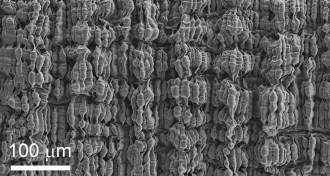 Materials Science
Materials ScienceStretchy fiber lets electrons flow
Folded layers of carbon nanotubes allow an elastic fiber to conduct electrical current when stretched.
By Andrew Grant -
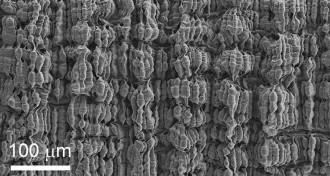 Materials Science
Materials ScienceStretchy fiber keeps electrons flowing
Folded layers of carbon nanotubes allow an elastic fiber to conduct electrical current when stretched.
By Andrew Grant -
 Astronomy
AstronomyKepler telescope identifies new ‘habitable zone’ planet
A new analysis of data from NASA’s Kepler mission has uncovered a planet orbiting a sunlike star that could be Earth’s “cousin.”
-
 Planetary Science
Planetary ScienceFirst craters on Mars spotted 50 years ago
Fifty years ago, Mariner 4 revealed that the Red Planet was peppered with craters. Now we know pockmarks are common on many other planets and moons, too.
-
 Paleontology
PaleontologySudden heat spikes did in Ice Age’s mammoth mammals
Abrupt warming and excessive hunting by ancient humans were responsible for the disappearance of many large mammals, including woolly mammoths, during Earth’s last glacial period.
-
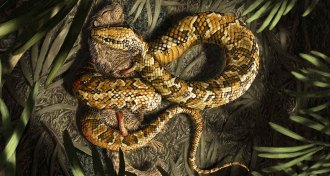 Paleontology
PaleontologyMuseum fossil links snakes to lizards
Scientists have discovered the fossilized remains of the first four-legged snake. The fossil bridges the gap between snakes and lizards.
By Meghan Rosen -
 Life
LifeCells from grandma help keep fetus safe
Grandmother’s cells may watch over grandchildren in the womb.
-
 Environment
EnvironmentFracking doesn’t always go to great depths
Fracking at shallow depths is unexpectedly common in the United States and raises new concern for drinking water contamination.
By Beth Mole -
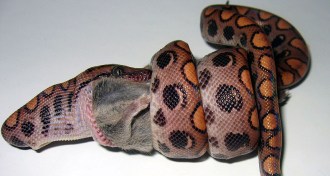 Animals
AnimalsBoas kill by cutting off blood flow, not airflow
Boas actually kill by constricting blood flow of their prey, not suffocating them, as scientists previously suspected.
-
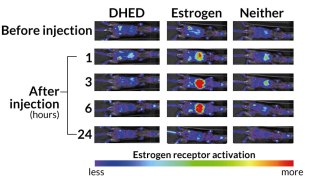 Neuroscience
NeuroscienceBoosting estrogen, only in the brain
Scientists have developed a chemical that transforms into the hormone estrogen in the brain, but not the body, of rats.
-
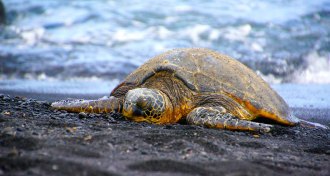 Animals
AnimalsSea level rise threatens sea turtles
Sea level rise is causing coastal areas to be inundated with water. Even short periods of being wet can kill sea turtle eggs, a new study finds.